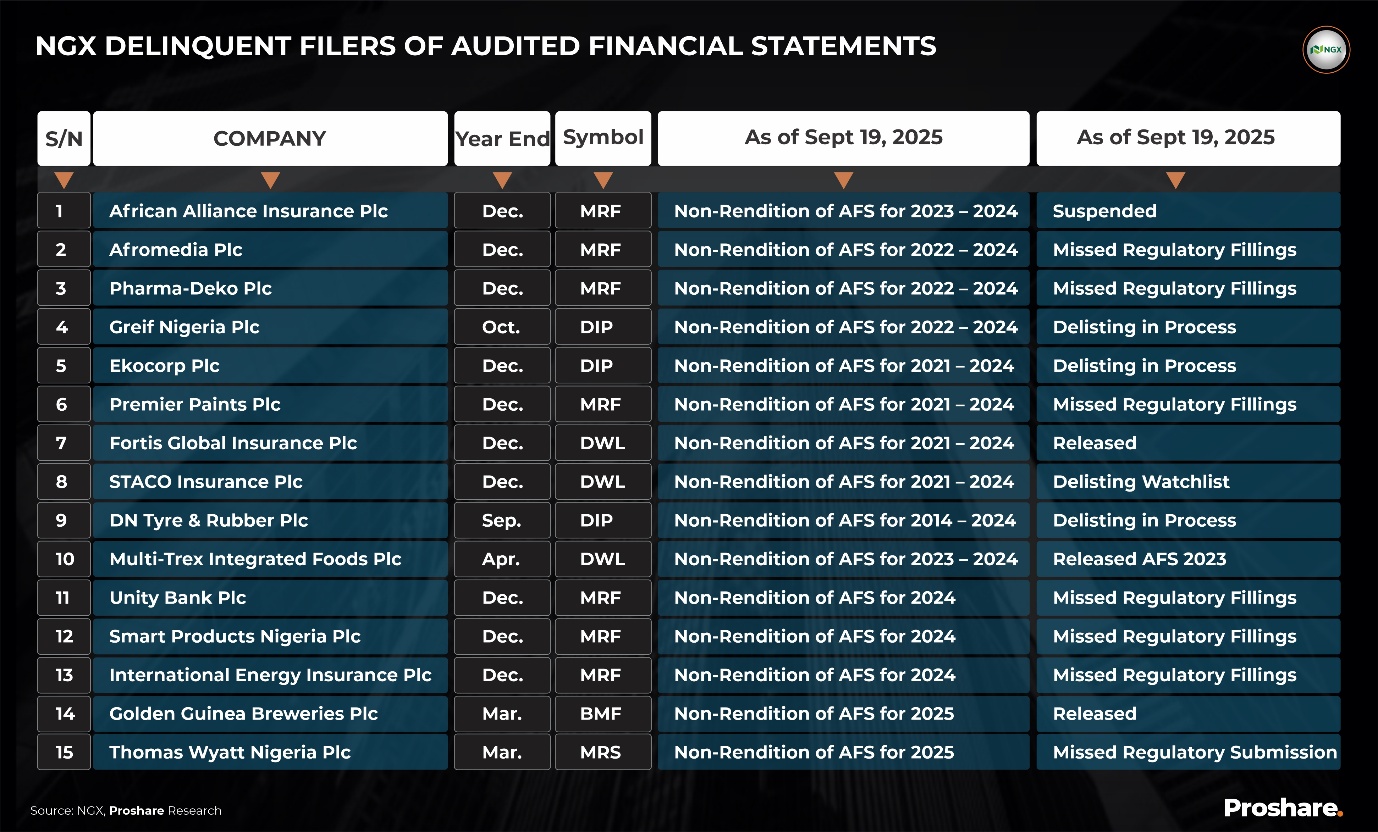Nigeria’s Capital Market Grows in Q3 2025 Amid Reforms and Rising Investor Confidence

The Nigerian equities market remained bullish in Q3 2025, with the NGX All-Share Index (NGXASI) rising 18.95% to close the quarter at 142,710.48 points, up from 119,978.57 points in June 2025. Analysts noted the strongest quarterly performance of the year so far, bringing the market’s year-to-date (YTD) return to 38.65%. The year began positively, with a cumulative growth of 2.66% in Q1, driven by gains of 1.53% in January and 3.09% in February. However, March saw a slight correction with a 1.91% decline, primarily due to profit-taking amidst policy uncertainties.
The third quarter (Q3) continued positively, with key contributors including a substantial 16.57% rise in July, the highest monthly gain of the year, along with a 0.31% increase in August and a 1.72% rise in September, underlining strong investor optimism driven by notable corporate earnings.
The performance in Q3 2025 reflects growing investor confidence. Foreign inflow increased by 30.65% in August 2025 compared to June, indicating an improvement in global economic confidence. (see Table 1 below).
Table 1
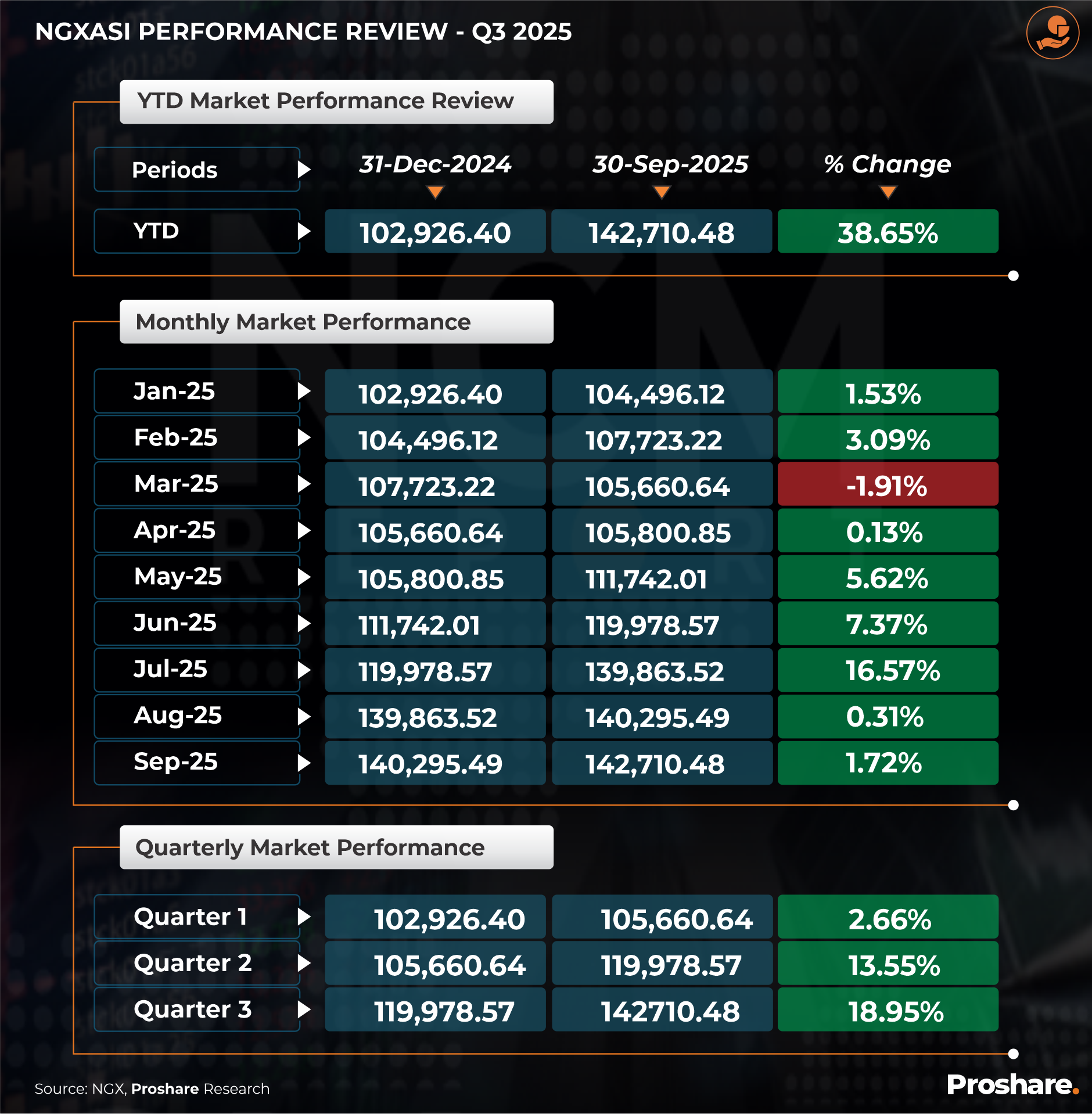
In terms of sectoral performance, the NGX Consumer Goods Index led the pack, with a year-to-date return of 94.66%. This rise was fuelled by improved economic conditions, including a stronger naira in the foreign exchange market and reduced inflation, which lowered operational costs. The NGX Banking index recorded 18.25% in Q3 2025, with a YTD return of 39.61% mainly driven by the ongoing recapitalisation directive by the Central Bank of Nigeria (CBN), which remained a major catalyst, driving increased demand for banking stocks. Investor sentiment was buoyed by announcements of mergers by Union Bank of Nigeria and Titan Trust Bank Limited. Shareholders of Unity Bank Plc have approved its merger with Providus Bank Limited, setting the stage for consolidation in the Tier 2 segment, as well as private placements and capital injections across Tier 1 and Tier 2 banks.
The NGX Insurance posted a YTD return of 65.88%, driven by the Nigerian Insurance Industry Reform Act (NIIRA), which was passed into a bill on August 5, 2025, and expectations of sector-wide recapitalisation and regulatory-induced growth opportunities in the sector. The NGX Oil and Gas Index was among the worst-performing indices, falling by 6.97% YTD, reflecting operational challenges within the sector, global oil price volatility, and investor reallocation away from energy stocks (see Table 2 below).
Table 2
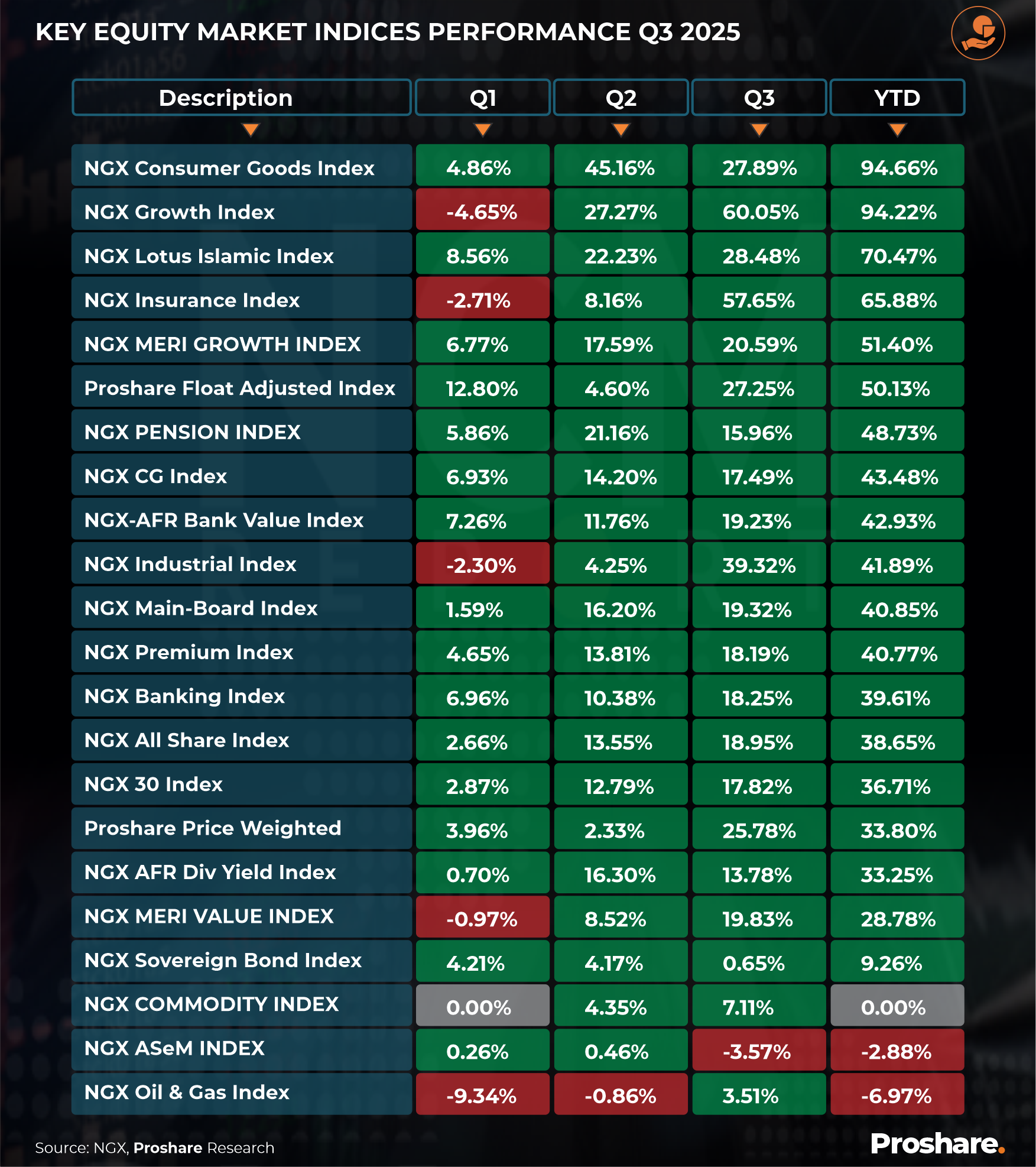
NASD OTC Market Review in July 2025
The NASD OTC Securities Exchange saw a strong performance in Q3 2025, with the NASD Securities Index (NSI) closing at 3,469.94 points, a 15.56% year-to-date (YTD) increase from 3,002.68 points. The first quarter was particularly robust, featuring gains of 3.87% in January, 5.66% in February, and 0.63% in March. This upward trend indicates growing investor confidence and positive market conditions in the early part of 2025.
However, the second quarter was more subdued, posting only a 0.94% gain overall. This was due to a market correction in April and May, where the index declined by 1.06% and 1.01%, respectively, as investors locked in profits amid tightening monetary policies. Nonetheless, June witnessed a recovery with a 3.06% uptick driven by bargain hunting and portfolio rebalancing.
In Q3, the market gained 3.66%, with July’s performance being particularly strong at 10.22%. However, the rally was short-lived, with declines of 1.88% in August and 4.14% in September. Analysts remain optimistic as investors anticipate key earnings releases from firms, which could stimulate renewed buy interest in the market (see Table 3 below).
Table 3
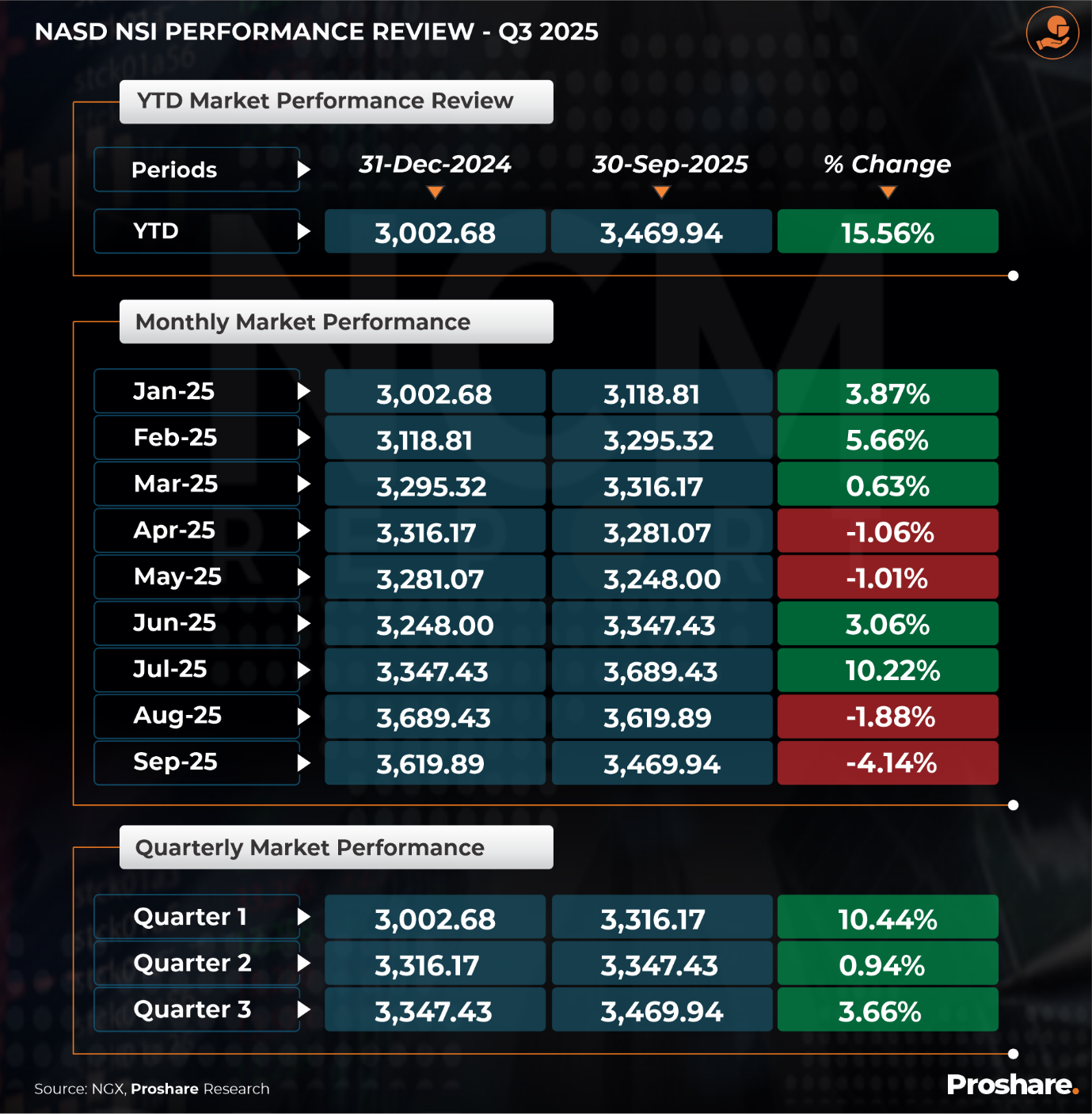
Local Commodities Market in Q3 2025
AFEX Commodities Index (ACI) recorded a year-to-date (YTD) return declined by 28.29%, indicating a decrease in the prices of certain staples, while the AFEX AEI fell by 7.25%, attributed to fluctuations in global demand and export dynamics. Analysts noted that investors have become increasingly cautious, as the listed commodities are attracting various investments, which has led to selloffs and a significant decline in prices on the exchange. The price of wheat, ginger, and sesame remained unchanged week-on-week in Q3 2025.
The Lagos Commodities and Futures Exchange (LCFE) Eko Gold delivered an impressive performance in Q3 2025, rising 57.48% to close at N140,000 per gram, buoyed by the global gold price rally driven by safe-haven demand amid economic uncertainties and persistent naira volatility.
LCFE expanded its product offerings by securing significant contracts, including the 23.4 billion Eko Rice Classic Spot deals. It also introduced financial products linked to commodities, such as the Eko Gold coin. In Q3 2025, the price of the Eko Gold coin continued to increase as investors viewed it as a store of value and a hedge against economic uncertainties, aligning with the global gold trend. The market dynamics of the Eko Rice Premium changed due to the expiration of the import duty waiver; however, demand remained robust (see Table 4 below)
Table 4
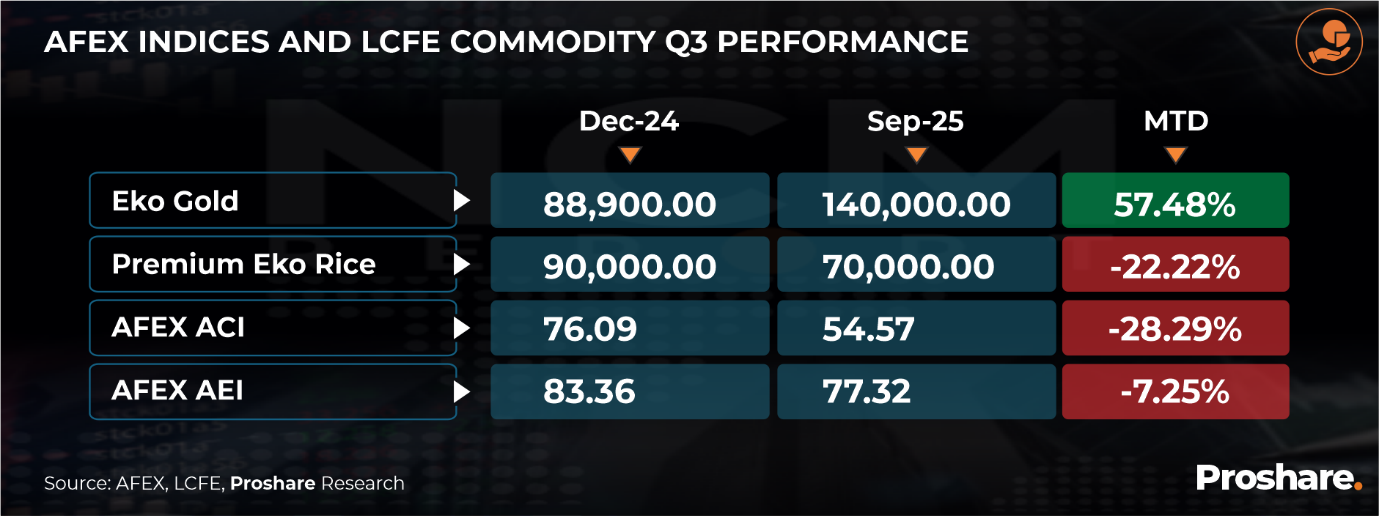
Nigerian Capital Market Size by Exchanges
The Nigerian capital market closed the third quarter of 2025 with a combined market size dominated by the NGX equities market, which accounted for 50% with a total size of N90.61trn. The FMDQ Debt Market followed, representing 49% with a market capitalisation of approximately N87.65trn, while the NASD OTC Securities Exchange accounted for 1% with a market size of N2.08trn. Analysts note that the balance between equities and debt reflects growing investor confidence, while the NASD continues to offer alternative investment opportunities for private companies seeking capital access (see chart below)
Chart 1:
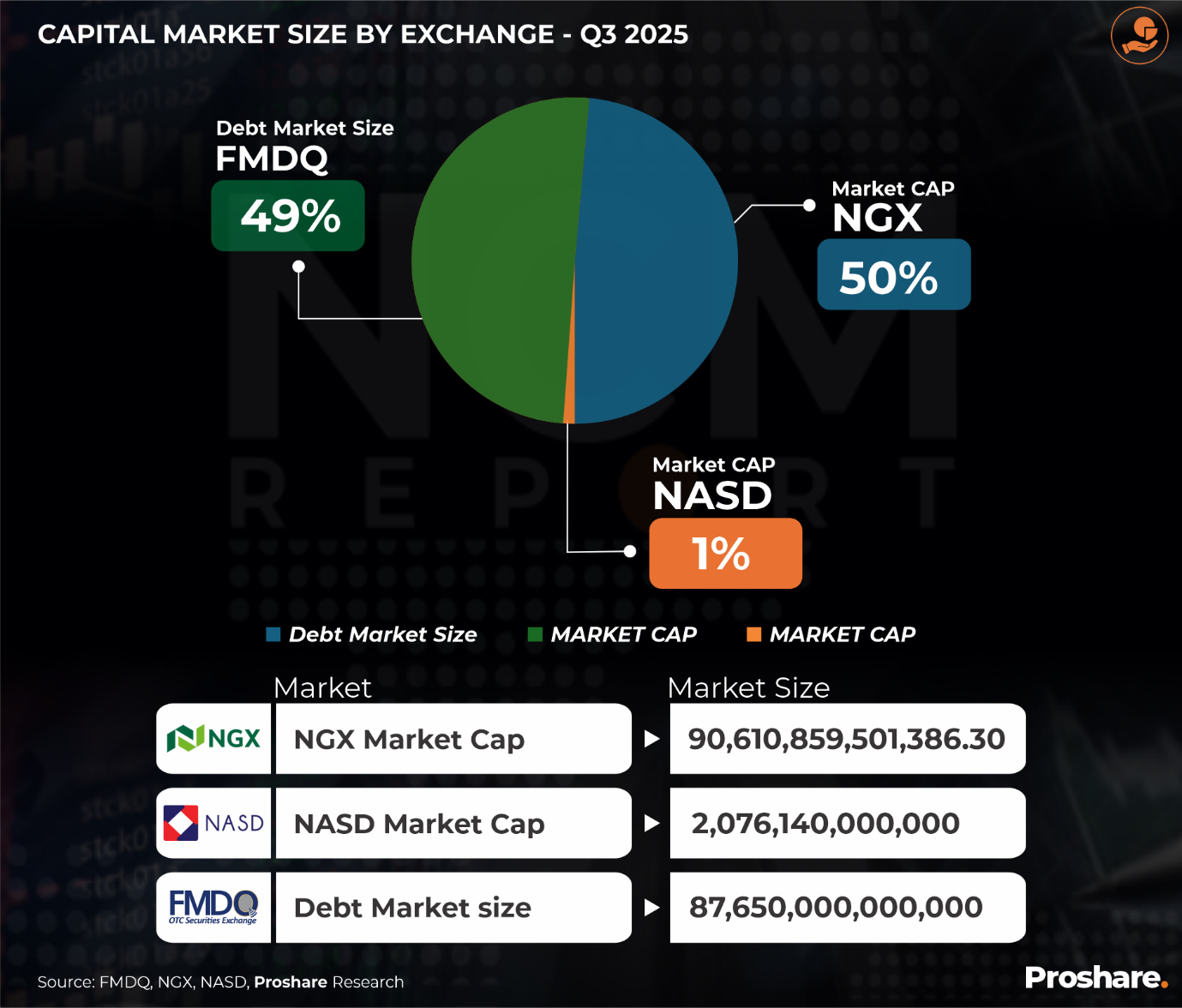
Updates on the X-Compliance Report
The Nigerian Exchange Limited (NGX), as of September 19, 2025, through its X-Compliance Report, listed several companies that have failed to submit their Audited and Unaudited Financial Statements for multiple financial years. According to the report, African Alliance Insurance Plc, Afromedia Plc, Pharma-Deko Plc, Greif Nigeria Plc, Ekocorp Plc, and Premier Paints Plc remain non-compliant, with delays spanning financial years 2021 to 2024. Some of these companies, such as Greif Nigeria Plc, Ekocorp Plc, and DN Tyre & Rubber Plc, are currently under delisting processes. At the same time, STACO Insurance Plc has been placed on the delisting watchlist.
Fortis Global Insurance Plc, Multi-Trex Integrated Foods Plc, and Golden Guinea Breweries Plc have recently shown compliance progress by releasing parts of their outstanding financial statements. However, other firms, such as Unity Bank Plc, Smart Products Nigeria Plc, and International Energy Insurance Plc, continue to miss regulatory filings for 2024.
Analysts, while acknowledging the updates in the latest X-Compliance Report, expressed concern that several companies that have failed to file their financial results for up to five consecutive years remain listed on the Exchange without suspension. This raises questions about transparency and regulatory enforcement within the system. Consequently, market observers have called on the NGX to intensify compliance monitoring and consider delisting companies that have persistently failed to meet their financial reporting obligations.
Table 5:
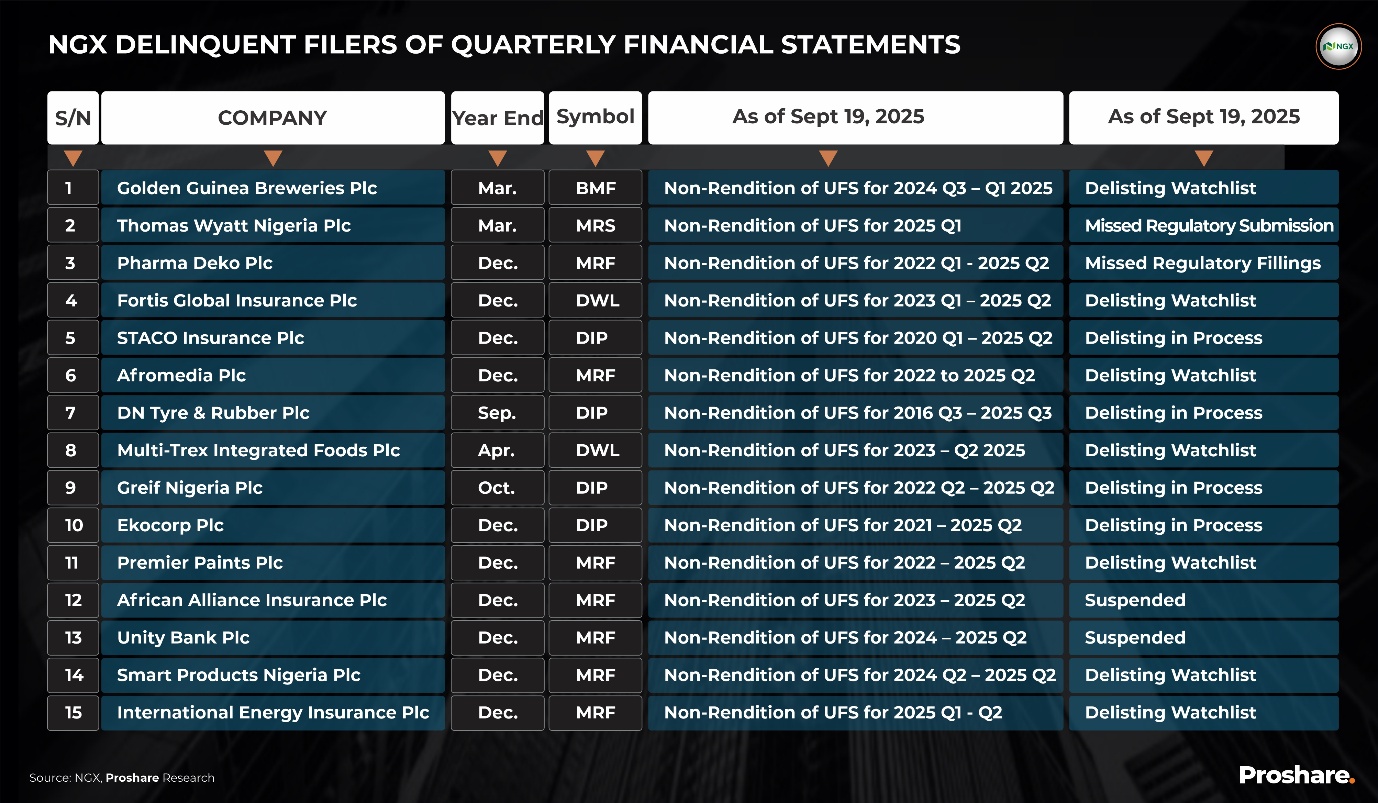
Table 6:
